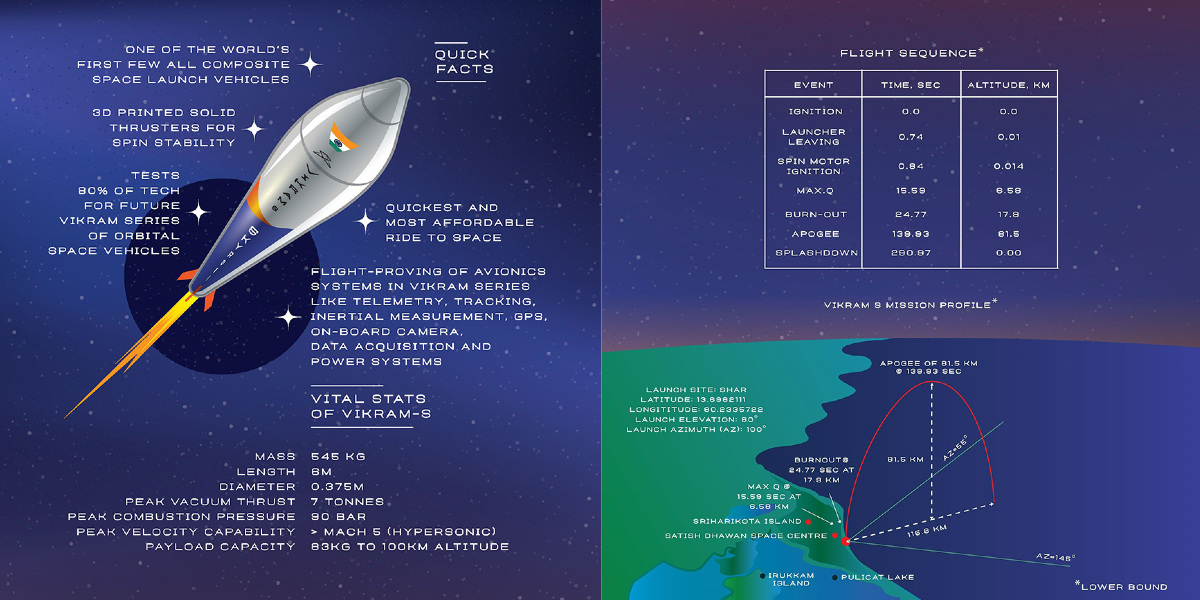[ad_1]

India’s space agency has successfully launched the Vikram-S after much anticipation and years-long work in a boost to the private sector of the nation’s space industry.
The Indian Space Research Organization (ISRO) kicked off the suborbital rocket at 11.30 a.m. local time Friday from the Satish Dhawan Space Centre in Sriharikota, India’s east coast.
The Vikram-S, developed by four-year-old startup Skyroot, is a single-stage, spin-stabilized solid propellant rocket with a mass of around 550 kilograms. It carries three customer payloads, including one from a customer outside India. Made of all-carbon fibre core structure, the 6-meter-long rocket was developed in two years.

Image Credits: Skyroot
The demonstration mission, named Prarambh (“the beginning” in Sanskrit), is the first by Hyderabad-based Skyroot. The startup is building a series of launch vehicles named after Vikram Sarabhai, the founder of India’s space program.
In June 2020, the Indian government passed the space sector reforms and established the Indian National Space Promotion and Authorization Center (IN-SPACe) to allow private companies to use ISRO’s infrastructure. New Delhi also set up NewSpace India Limited (NSIL) as the space agency’s commercial arm to work closely with private companies and startups to bolster space developments in the South Asian country.
Founded in 2018 by former ISRO scientists Pawan Kumar Chandana and Naga Bharath Daka, Skyroot successfully tested fire India’s privately-made solid rocket stage in December 2020. It was also the country’s first startup in 2021 to sign a Memorandum of Understanding with the ISRO to launch its rockets.
The startup has raised $68 million in total, including $51 million in a Series B round led by Singapore-based GIC in September, and has a valuation of $165 million.
According to the data shared by Indian Space Association (ISpA) with TechCrunch, Indian space startups have raised over $245.35 million, where $108.52 million were infused in 2022 alone. The association counts Skyroot as one of its members, alongside private companies including Bharti Airtel and OneWeb as founding members.
The government is currently working on a new space policy to increase private participation and encourage investment in the country’s space sector.
In a recent interview with TechCrunch, ISpA Director General Lt. Gen. AK Bhatt said the space policy would address some issues raised by the industry players, including a single sanction window and spectrum allocation for satellite-based communication services through the Department of Telecommunications.
The industry players have also requested the government to open foreign direct investment policy and incentives on taxes, import duties and domestic manufacturing of space equipment that are yet to be addressed.
[ad_2]
Source link
